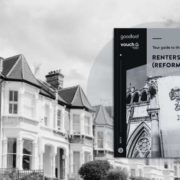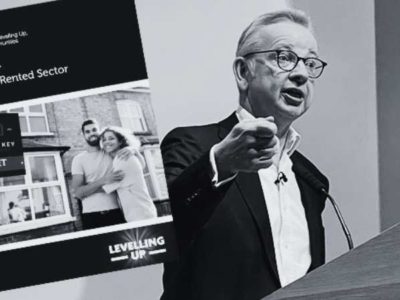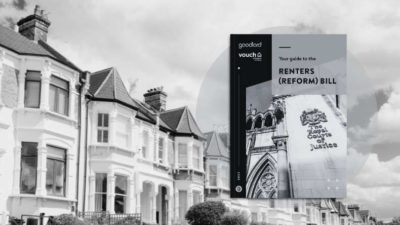Annual house price growth slowed modestly to 12.1% in April, down from 14.3% in March – nevertheless, this is the 11th time in the past 12 months that the annual growth rate has been in double digits.
Prices rose by 0.3% month-on-month, after taking account of seasonal effects – the ninth successive monthly increase, though this is the smallest monthly gain since September last year.
Housing market activity has remained solid with mortgage approvals continuing to run above pre-Covid levels. Demand is being supported by robust labour market conditions, where employment growth has remained strong and the unemployment rate has fallen back to pre-pandemic lows.
With the stock of homes on the market still low, this has translated into continued upward pressure on house prices.
Nevertheless, it is surprising that conditions have remained so buoyant, given mounting pressure on household budgets which has severely dented consumer confidence.
Indeed, consumers’ expectations of their own personal finances over the next twelve months has dropped to levels last seen during the depths of the global financial crisis more than a decade ago, commented Robert Gardner, Nationwide’s Chief Economist.
Moreover, Gardner continued, housing affordability has deteriorated because house price growth has been outstripping income growth by a wide margin over the past two years, while more recently borrowing costs have increased (though they remain low by historic standards).
Why is activity so buoyant?
This month, we conducted a survey of c3,000 consumers across the UK to better understand current market conditions.
It was striking that 38% of respondents stated that they were either in the process of moving or considering a move.
The proportion was particularly high in London, where almost half said they were moving or considering a move. But even in Wales, where the share was lowest, more than 25% were either moving or considering a move – very high, given that only c5% of the housing stock turns over in a typical year in the UK.
The proportion of people considering a move was highest amongst private renters (at 45%) but was also elevated amongst those living with family (44%) and those owning their own home (30% of those owning their property outright and 42% of those owning with a mortgage).
Interestingly, despite mounting pressure on household finances, the share of people moving or considering a move was higher than during the height of the pandemic in April last year across all tenure types.
Are households still ‘racing for space’?
The survey results suggest that shifts in housing preferences as a result of the pandemic are continuing to support housing market activity, though to less of an extent than at this time last year.
For example, around a quarter (24%) of those moving or considering a move said that this was to move to a larger property (a similar outturn to April 2021), and for most age cohorts a majority are still looking to move to less urban environments.
However, the proportion of those citing a desire to get away from the hustle and bustle of urban life or access to garden / more outside space has declined substantially – to 12% and 15% respectively, down from 25% and 28% in April 2021.
For most movers and potential movers, the majority of those surveyed are looking to trade up – the exception being amongst those aged 55 and above, where nearly 40% are looking to move to a smaller property compared to just 7% looking to move to a larger property.
Perhaps unsurprisingly, given the pressure on budgets, financial reasons are cited as a factor motivating a move by a sizeable minority.
17% of those moving or considering a move said they were doing so at least in part to reduce spending on housing, either by moving to a different area and/or by moving to a smaller property.
| Headlines | Apr-22 | Mar-22 |
|---|---|---|
| Monthly Index* | 531.0 | 529.3 |
| Monthly Change* | 0.3% | 1.1% |
| Annual Change | 12.1% | 14.3% |
| Average Price(not seasonally adjusted) | £267,620 | £265,312 |
Where next for the housing market?
We continue to expect the housing market to slow in the quarters ahead.
The squeeze on household incomes is set to intensify with inflation expected to rise further, perhaps reaching double digits in the quarters ahead if global energy prices remain high.
Moreover, assuming that labour market conditions remain strong, the Bank of England is likely to raise interest rates further, which will also exert a drag on the market if this feeds through to mortgage rates, Gardner concluded.
Tom Bill, head of UK residential research at Knight Frank, said:
“The wave of strong house price growth that has been building for two years appears to be breaking.
Supply is not back to its seasonal norm but it has built from a low base as the spring market got underway.
On top of that, the cost-of-living squeeze is being increasingly felt, mortgage rates continue to creep up and the race for space is calming down.
We expect growth to decline to single digits by the end of the year and the property market should bear a much closer resemblance to its pre-Covid state by autumn.”
Tomer Aboody, director of property lender MT Finance, said:
“The continued shortage of properties for sale is continuing to push up prices as buyers are still seeking space or feeling a change is needed.
With interest rates on the up, buyers are rushing to secure a mortgage now before further increases are implemented.
As rates rise and inflation increases, a lack of confidence is likely to start to filter through, leading to a slow calming of the market in coming months.”
Mark Harris, chief executive of mortgage broker SPF Private Clients, said:
“There is much speculation about rising interest rates and whether this will impact property prices but we are in a low interest rate environment, and are likely to be for a while at least.
Even though rates are edging upwards, and may again at the next MPC meeting, they are coming off an extremely low base.
Lenders have plenty of cash to lend and are keen to lend to the right borrowers, although the more house price growth outstrips incomes the tougher it will be on the affordability side to get the numbers to add up.”





















Comments